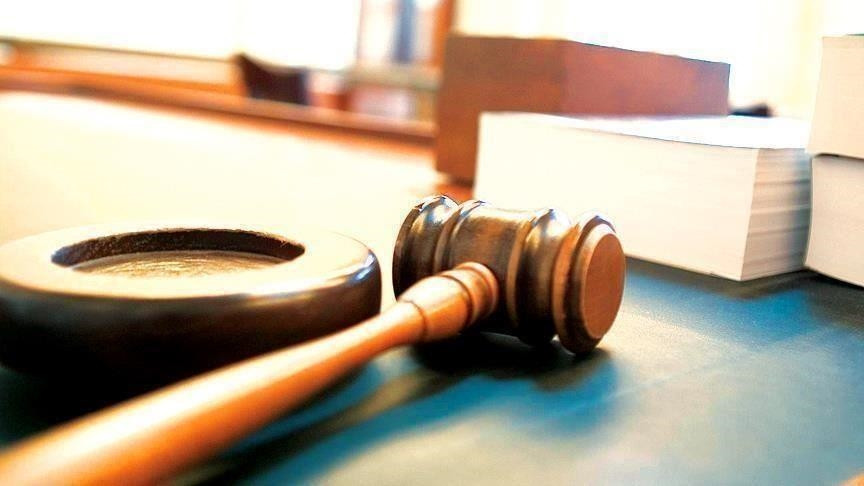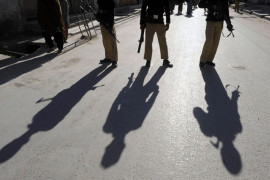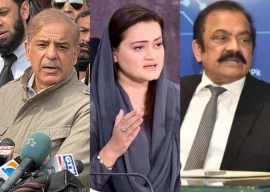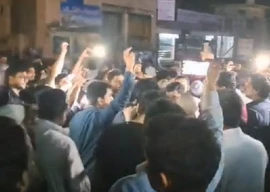
In the latest sign that PTI chief Imran Khan’s legal controversies that have clouded Bani Gala for years may be entering a new protracted chapter, the sword of contempt is hanging on the former prime minister – yet again.
Senior lawyers believe that jurisdictional issues may arise in the IHC proceedings, pointing out it is yet to be settled whether high courts have the authority to initiate contempt proceedings in the absence of any petition.
They recalled that the apex court has always questioned suo motu jurisdiction initiated by the high courts. Likewise, when the FIR is registered then the court should also initiate a contempt proceedings or not.
The Islamabad High Court (IHC) on Monday decided to initiate contempt proceedings against Imran Khan for passing controversial remarks regarding female sessions court judge Zeba Chaudhry.
At a rally in Islamabad’s F-9 park on Saturday, Imran had threatened to file cases against Islamabad’s inspector general (IG) of police and deputy inspector general (DIG) of police and declared: “We won’t spare you.” He then warned the judiciary against its “biased” attitude towards his party, saying that it should brace itself for the consequences.
This is not the first time the court is taking up a contempt matter against Imran. However, the PTI chief has managed to secure relief in such cases.
In 2013, the top court had summoned cricketer-turned-politician Imran for a contempt hearing over his "critical and derogatory" remarks against the judiciary.
Imran, who had by then made a major breakthrough in the general election, had allegedly said that the polls were rigged and criticised the judiciary and the Election Commission of Pakistan (ECP) for not taking notice.
"While holding press conference on 26.7.2013, he (Khan) stated that the role of judiciary and Election Commission of Pakistan is shameful in the conduct of general elections; that the elections were rigged, due to role played by these two institutions," the apex court’s notice read.
However, in a major relief for Imran, the Supreme Court decided to drop contempt proceedings on the suggestion of the then attorney general for Pakistan Muneer A Malik.
A three-member bench headed by Justice Anwar Zaheer Jamali discharged the notice after hearing the arguments of AGP Munir in the case who said that it is not the matter of disobedience.
The judgment said that admittedly, Imran Khan is a public figure and duly elected member of the National Assembly who has not only been actively involved in politics for a considerable period, but also heads a political party.
"In such circumstances, while considering his conduct, we also cannot lose sight of the provision of Articles-19 and 66 of our Constitution, relating to freedom of speech and the privileges of members of Majlis-e-Shoora (Parliament).”
"Thus, at this juncture, as a note of caution, we may observe that politicians and other public figures having their say and a following amongst the public are expected to use more decent and guarded language and have to be more careful in the selection of words in public gatherings or press conferences so as to show their intellect, maturity of mind and wisdom qua respect to various national institutions, and to present themselves as role models for the society at large,” the judgement noted.
Similarly, earlier this year, the Supreme Court refused to initiate contempt proceedings against the PTI chief over the non-implementation of its May 25 order.
The apex court had issued clear instructions to hold its Azadi March protest near Peshawar Mor between the H-9 and G-9 areas of Islamabad. However, Imran and his protestors did make their way toward D-Chowk, prompting the government to call in the Pakistan Army for the security of the capital's Red Zone.
The apex court had formed a five-member larger bench, headed by Chief Justice Umar Ata Bandial, to hear the application filed by Attorney General of Pakistan Ashtar Ausaf.
However, SC Judge Justice Yahya Afridi, while dissenting with the majority order, observed that a contempt proceeding should be initiated against PTI chairman and deposed premier Imran Khan for instructing party activists and supporters to proceed toward D-Chowk in violation of the SC's May 25 order.
He noted that there was sufficient material before the SC to initiate a contempt proceeding against Imran Khan over violation of the May 25 order and instructed the party activists and supporters to proceed toward D-Chowk.
However, instead of issuing a contempt notice, the majority judges on June 1 sought reports from director generals of Inter-Services Intelligence (ISI) and Intelligence Bureau (IB) as well as Islamabad IG police, interior secretary and others over the alleged involvement of PTI leaders in instigating party workers to reach Islamabad's D-Chowk in violation of its May 25 order.
Later the court was apprised by the law enforcement agencies that a “crowd was organised to enter Red Zone under the PTI leadership who had reached Express Chowk with the intent to proceed further towards D-Chowk as per the directions of the party’s highest command”.
The matter is still pending in the apex court.

1724657897-0/Untitled-design-(2)1724657897-0-405x300.webp)




















COMMENTS (1)
Comments are moderated and generally will be posted if they are on-topic and not abusive.
For more information, please see our Comments FAQ